Coronavirus: Dr El-Hawrani, the NHS and the death of facts
Four newspapers lead with the death of Dr Amgad El-Hawrani, an NHS and private earth nose and throat consultant who was infected with coronavirus before he died. All newspapers call him Dr Amged El-Hawrani, even though the NHS knew him as Dr Amgad El Hawrani. This is his profile on the NHS website:
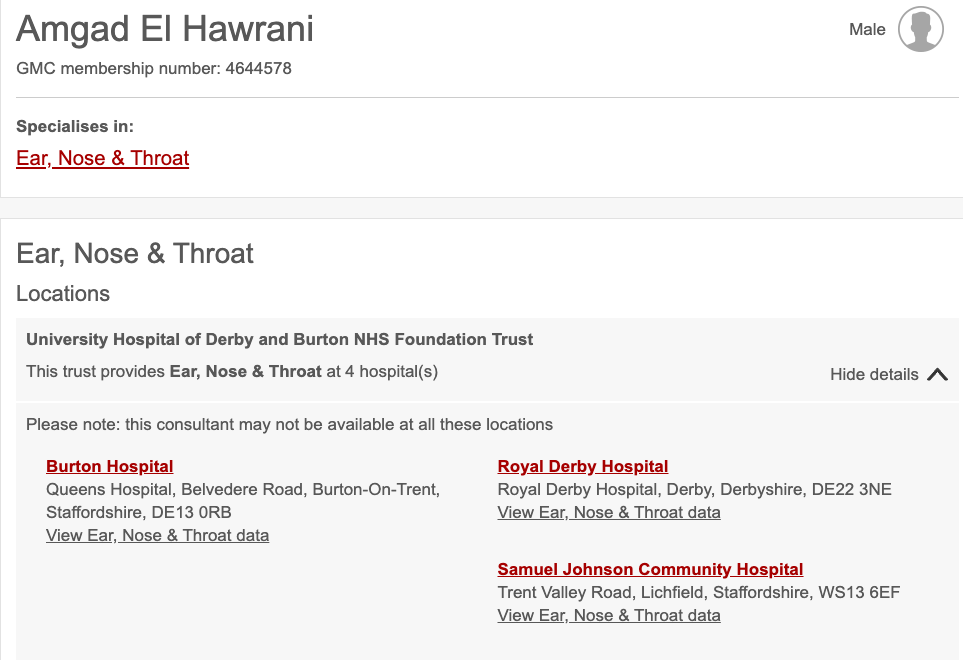
Having renamed the doctor – although a filing at companies house does give his name Amged El-Hawrani – the papers tell the story of how a talented man at the top of his field came to die at just 55 years old. The Times leads with news what he picked up an infection from a patient.
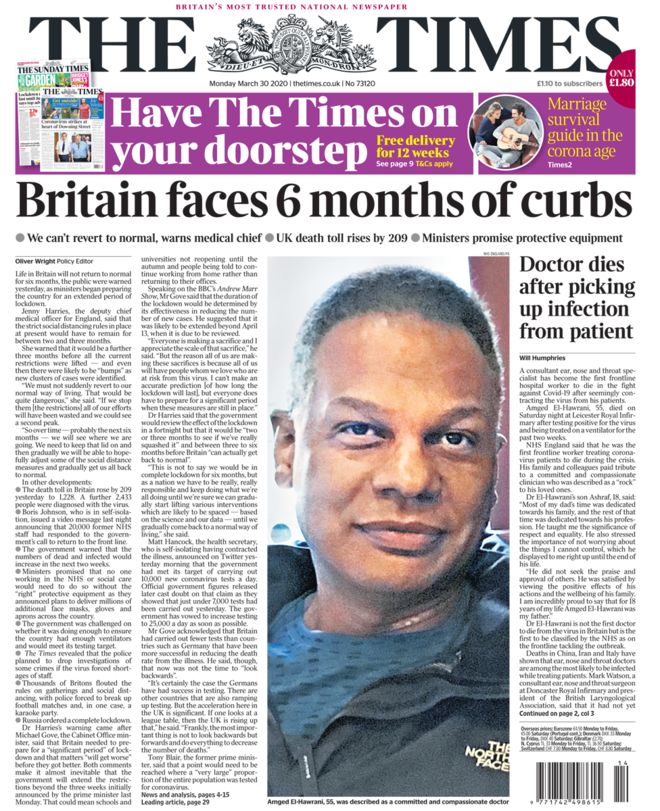
So Dr El-Hawrani picked up Covid-19 virus from a patient. Fact. Well, no. It’s just a maybe. After the headline news has grabbed your eyeballs, the Times tells its readers:
A consultant ear, nose and throat specialist has become the first frontline hospital worker to die in the fight against Covid-19 after seemingly contracting the virus from his patients.
So he could have come into contact with the disease anywhere. We’re looking at likelihood not facts.
Amged El-Hawrani, 55, died on Saturday night at Leicester Royal Infirmary after testing positive for the virus and being treated on a ventilator for the past two weeks.
We do not know where Dr El-Hawrani caught Covid-19. But the story is out there that he caught it on a ward as he worked for the NHS. The headlines suggest that much. We hear an opinion:
The death of Amged El-Hawrani, 55, an ear, nose and throat specialist, marks a sad moment in Britain’s fight against coronavirus but is a familiar story in countries around the world (Kat Lay writes).
In China, Iran and Italy doctors from his specialty seem to have been particularly likely to become hospital in-patients or even die from the virus. Another ENT consultant, in Sheffield, is said to be improving after receiving critical care. The nature of ENT doctors’ work means they have to get close to patients’ faces — and coronavirus spreads through droplets from sufferers’ noses or mouths. This means that specialists are particularly likely to be exposed. Research suggests that those exposed to a higher initial “dose” of the virus are more likely to suffer a severe form of the disease.
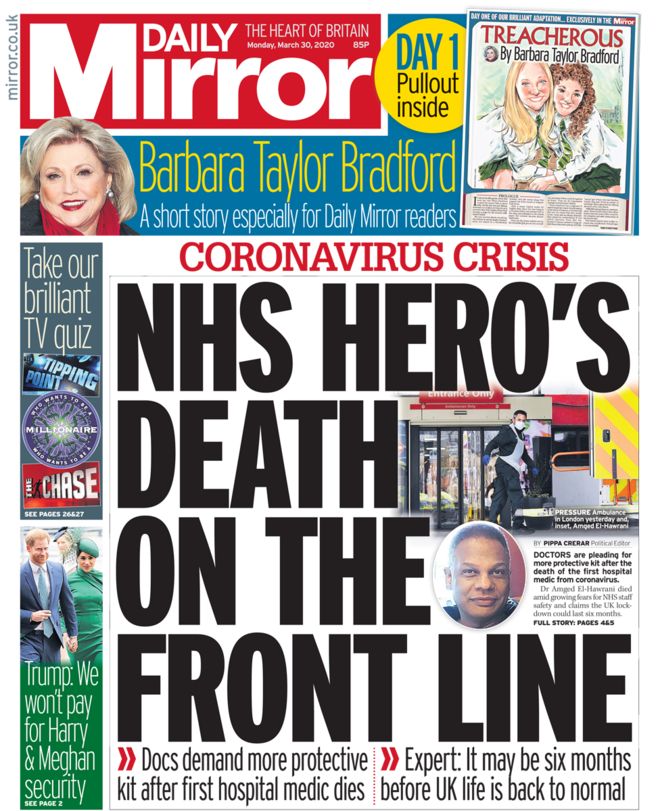
The Mirror calls Dr El-Hawrani a hero and links his death to a demand for more protective kit.
Ear, nose and throat specialist Dr El-Harwani, who died on Saturday, is understood to have contracted the virus several weeks ago.
Understood by whom? We’re not told. We do not know where the doctor caught the virus. Low down the front-page story, the Mirror concedes: “It is not known how Dr El-Hawrani contracted Covid-19.” But that fact comes after readers are told:
NHS England described Dr El-Hawrani as the first practising hospital doctor to die of the virus…
Might he have caught the disease elsewhere? Did he travel overseas recently? We’re not told.
As worrying footage of a nurse working in a coronavirus ward wearing only basic protection was passed to the Mirror, the Doctors’ Association UK said it was “deeply saddened” by Dr El-Hawrani’s death.
And it urged the Government to make a priority of “protecting the lives of the life-savers”.
The facts are thin. But that does not stop the Mirror from spreading anxiety. Aren’t things safer than they were several weeks ago when Dr El-Hawrani caught the disease now that the country is under lockdown, patients are being tested for Covid-19 and awareness is growing? It’s not ideal, of course, this is dangerous work – and medics come into contact with sick people every day of their working lives in GP surgeries and hospitals. But without facts media should be cautious about using a man’s death for any narrative purpose other than to mourn it and empathise with his family’s loss.
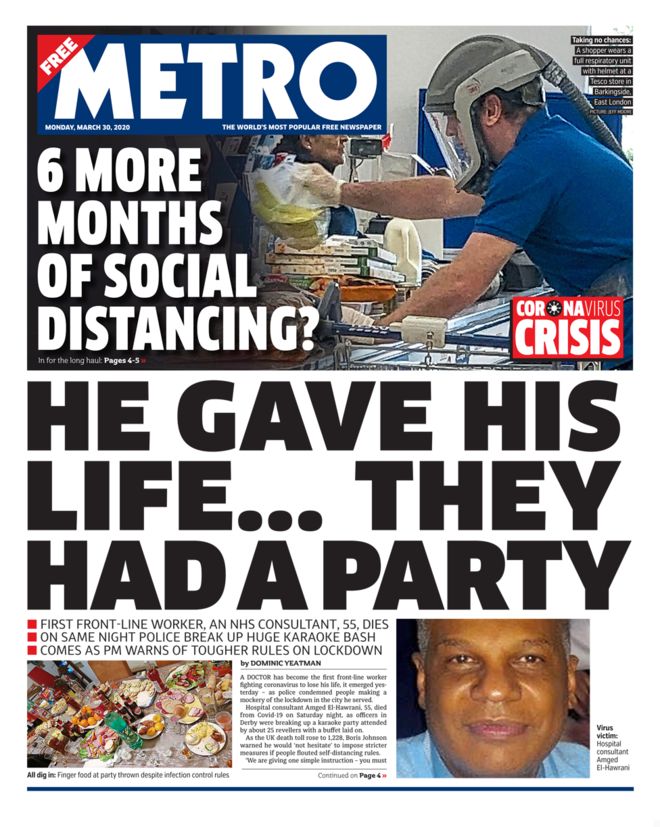
The Guardian reports:
A 55-year-old hospital consultant has died of coronavirus, underlining the danger to frontline NHS workers.
It’s horrible news. But we do not know how Dr El-Hawrani caught the disease.
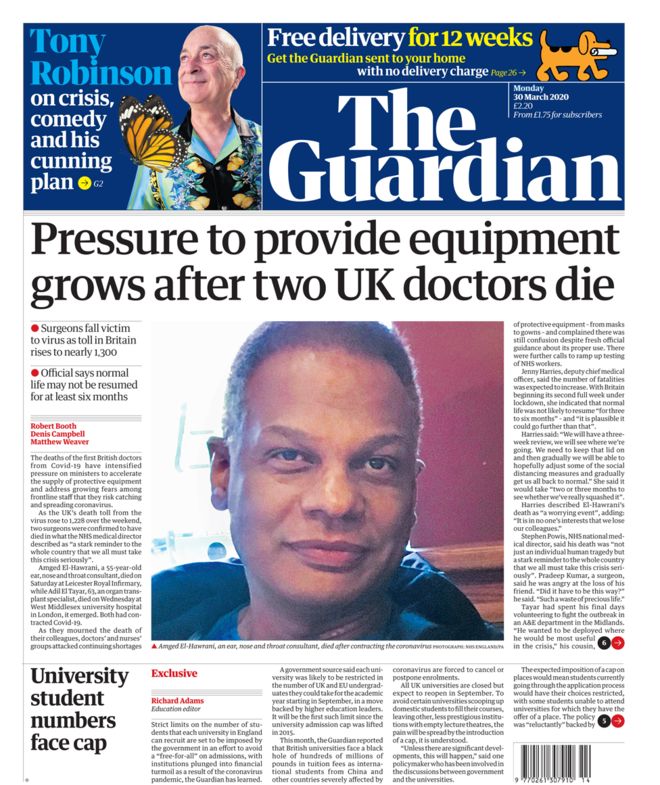
Did Dr El-Hawrani take on private patients? If he did, as many consultants do, might he have contracted the coronavirus working with them and not on the “frontline” for the NHS? But the media narrative has not time to entertain that possibility:
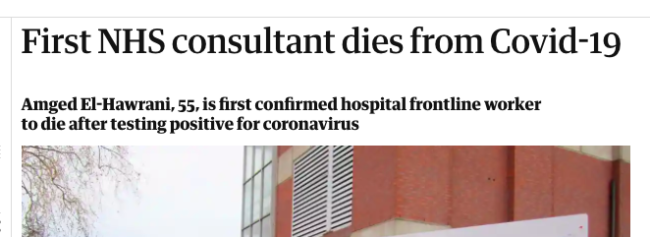
Did he only work for the NHS? No papers mention that Dr El-Hawrani also worked in private medicine.
About Private Healthcare UK
Private Healthcare UK was established in 1996 and helps patients to find information about private medical treatment, hospitals, clinics, doctors, specialists and health insurance.
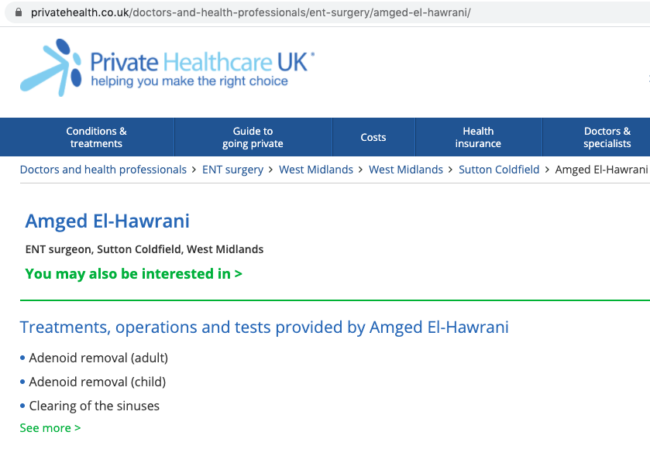
And there’s BUPA – “A leading international healthcare group, we run care homes, health centres, dental centres and hospitals, offer personal and company health insurance and provide workplace health services, health assessments and chronic disease management services including health coaching.” In short: private healthcare.
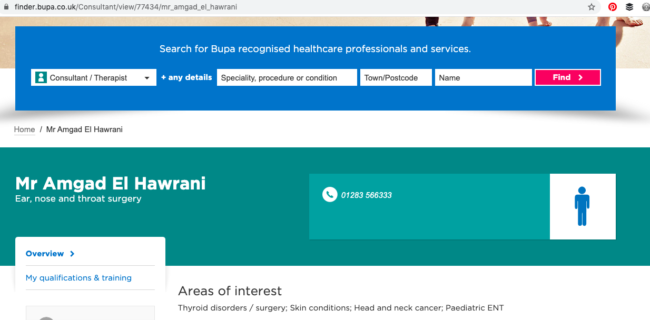
Such are the facts.
Posted: 30th, March 2020 | In: Key Posts, News 1 Comment | TrackBack | Permalink


